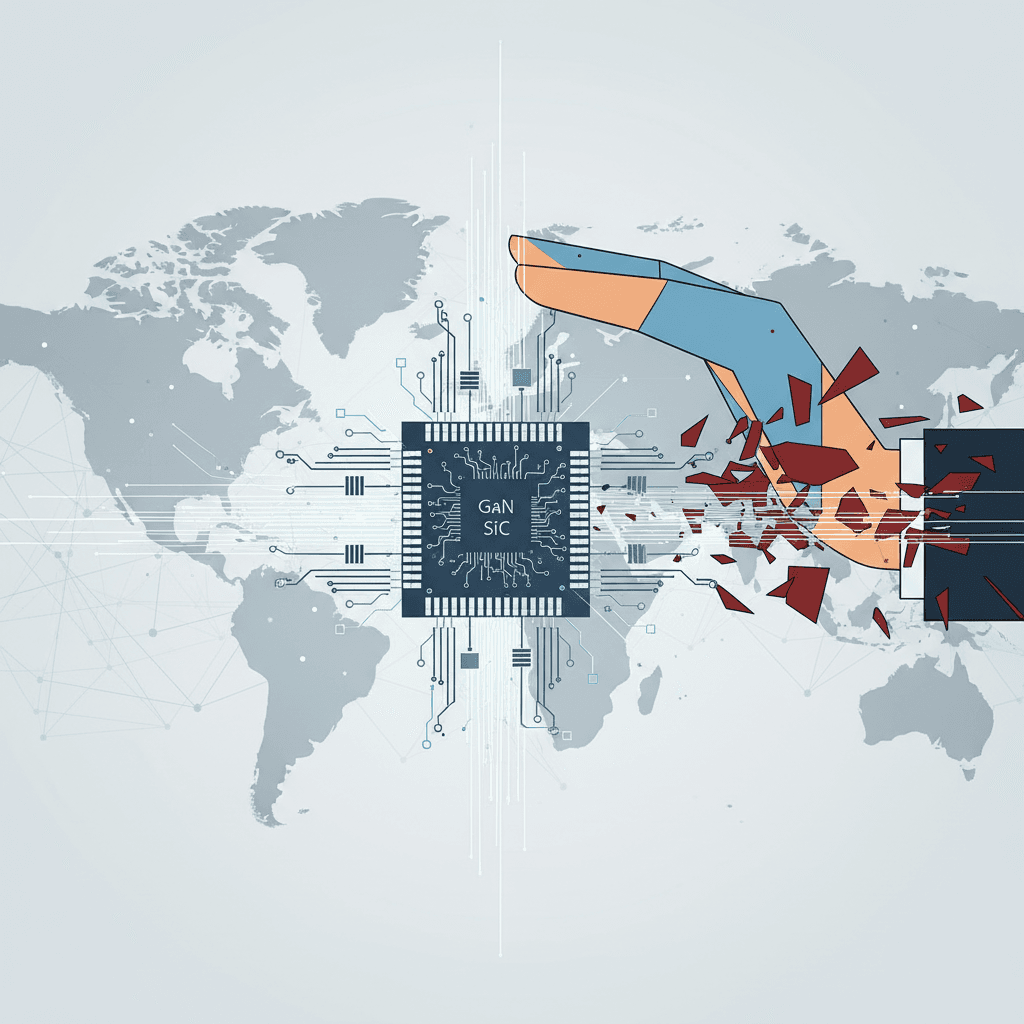Dutch Government Seizes China's Nexperia, Escalating Global AI Tech War
Dutch nationalize Chinese-owned chipmaker vital for AI, marking a new phase in the global tech sovereignty conflict.
October 13, 2025

In a significant escalation of the technology conflict between Western nations and China, the Dutch government has seized control of Nexperia, a Netherlands-based semiconductor manufacturer owned by a Chinese technology conglomerate. The move, described by the Dutch Ministry of Economic Affairs as "highly exceptional," was executed to safeguard crucial technological knowledge and capabilities on European soil, citing "serious governance shortcomings" within the company. This intervention marks a new phase in the global battle for semiconductor supremacy, extending beyond advanced chipmaking equipment to the foundational components that underpin modern electronics and the burgeoning artificial intelligence industry.
The Hague invoked the rarely used "Goods Availability Act," a law dating back to 1952, to intervene in the operations of the Nijmegen-headquartered firm.[1][2] This act grants the government the authority to block or reverse company decisions deemed detrimental to Dutch and European economic security.[3][4][5] The immediate trigger for this drastic measure was not external pressure alone, but an internal crisis. According to corporate filings, the intervention followed an urgent petition filed at the Amsterdam Enterprise Court on October 1st by Nexperia’s own European senior executives, including its Chief Legal Officer, Chief Financial Officer, and Chief Operating Officer.[6][1] Their petition requested an investigation into the company's governance and led to an emergency court ruling that suspended the Chinese chairman of parent company Wingtech Technology, Zhang Xuezheng, from his executive roles at Nexperia.[6][1][7] Reports suggest there were concrete fears among the company's European leadership that Nexperia's know-how was at risk of being transferred to China, posing a direct threat to national and economic security.[6][7][8]
While Nexperia does not produce the high-profile processors that power AI models, its products are fundamental to the global technology ecosystem, including the hardware that supports artificial intelligence. The company is a high-volume manufacturer of essential semiconductors such as diodes, transistors, and MOSFETs, shipping over 100 billion units annually.[3][2][9] These components are critical for the automotive and consumer electronics industries, where Nexperia is a major global player.[10][9] More significantly in the current technological climate, Nexperia is a key producer of power semiconductors, including advanced Gallium Nitride (GaN) and Silicon Carbide (SiC) devices.[11][12] These components are vital for managing power consumption efficiently, a critical challenge for AI data centers which consume massive amounts of electricity.[6][13] As the AI industry's growth accelerates, so does the demand for these power-efficient semiconductors to regulate voltage, control current, and minimize energy loss in servers and cooling systems.[13] The seizure of a company integral to this part of the supply chain underscores that the tech competition now encompasses not just the "brains" of AI systems, but the entire electronic anatomy required to power them.
This government takeover is the latest and arguably most forceful move in a series of Western actions aimed at curbing China's technological ambitions and securing domestic supply chains. Nexperia has been under scrutiny for years; in 2022, the British government forced it to divest its ownership of Newport Wafer Fab, the UK's largest chip plant, citing national security risks.[4][5] Nexperia’s parent company, Wingtech, was added to the U.S. Department of Commerce's "entity list" in December 2024, restricting its access to American technology.[6][14][15] The Dutch action also follows sustained pressure from the United States on the Netherlands to restrict its crown jewel, ASML, from exporting advanced semiconductor manufacturing equipment to China. The intervention aligns with the European Union's broader strategy to achieve "digital sovereignty" and bolster its internal semiconductor production capabilities under the European Chips Act, which aims to double the bloc's global market share in chips to 20% by 2030.[16]
The repercussions of the Dutch government's decision were immediate and far-reaching. Wingtech’s shares plunged by the 10% daily limit on the Shanghai Stock Exchange following the announcement.[11] The Chinese parent company, along with the Chinese government, vehemently protested the move. In a now-deleted social media post, Wingtech decried the seizure as an "excessive intervention driven by geopolitical bias, rather than a fact-based risk assessment" and accused members of Nexperia's foreign management of exploiting political tensions to seize control.[6][17] A Chinese Foreign Ministry spokesperson stated that Beijing "always opposes overstretching the concept of national security and discriminatory practices against companies from specific countries" and vowed that China is "determined to safeguard its legitimate rights and interests."[18] This raises the prospect of retaliatory measures against Dutch or other European companies operating in China, further fracturing a global tech supply chain already under immense strain. The move sets a stark precedent, signaling that Western governments are now willing to go beyond export controls and investment screening to directly nationalize assets in the name of technological and economic security, redrawing the map of global industry one chipmaker at a time.
Sources
[1]
[2]
[3]
[4]
[7]
[8]
[9]
[10]
[11]
[13]
[14]
[15]
[16]